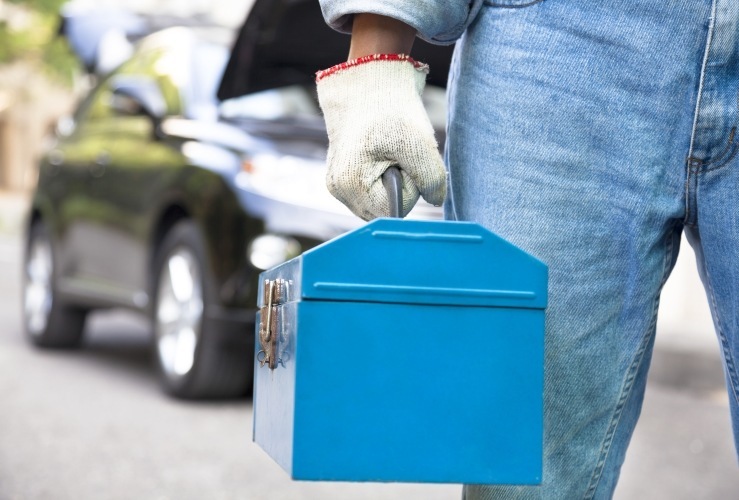If you're keen to maintain your car by yourself or are about to set off on a long road trip, it is advisable to store some essential tools in the vehicle to help fix minor problems and keep your motor running.
You'll need to find and purchase a lightweight, ideally plastic, toolbox that will keep the contents clean, in good shape and all in one place for easy access. It should also fit neatly into your car boot, not taking up too much space so you can fill the boot with anything else you need to carry.

Here's an overview of the tools that you should pack to keep your car in tip-top condition, even on long journeys.
Screwdrivers
You should keep both a flat head, which has a single blade, and a Phillips head, which has two blades in the shape of a cross, in your toolbox. It's also useful to have an offset screwdriver to hand, as the shaft is at a 90-degree angle and turns like the hands of a clock, allowing you to get into tight spaces that its straight counterpart may struggle to reach. Offset screwdrivers also come in both flat and Phillips head variations.
Screwholders
This type of tool also helps you to get to awkward places in your car, such as under the bonnet. Instead of trying to hold the screw in place with the fingers of one hand while clutching the screwdriver in the other, you can fit the screw into the holder and use it to insert and tighten it, which should stop you from dropping the screw and losing it somewhere in the car.
Wrenches
A wrench is probably one of the most useful and basic tools needed to maintain a car, so it is a good idea to keep at least one in your toolbox. They are typically available in Society of Automotive Engineers (SAE) and metric measurements, with vehicles imported from the US requiring a mix of both, while European, British and other foreign models need a metric wrench.
Socket wrench
This tool often comes in a set of wrenches, but this will obviously depend on the price and quality of the kit you purchase. You will need at least one ratchet handle, with some sets containing two or three handles with at least one adapter. Socket extenders are incredibly useful and will assist you when trying to reach near-inaccessible areas of your vehicle.
Combination wrench
These have one open end, one boxed end and come in a variety of sizes. Each wrench is made to fit a specific nut size, no matter which end you need to use.
Torque wrench
This type of wrench has been designed to tighten a nut, bolt or screw to a particular degree, which helps you avoid under or over tightening.
Adjustable wrench
A crescent wrench, which you probably already own if you're into DIY or are a motor maintenance enthusiast, can be adjusted to fit a variety of nuts and bolts by simply turning the wheel, making it a very handy tool to keep in the car.
Pliers
If you don't already own a pair of these and are in the market for some to keep in your toolbox, invest in a set of combination slip-joint pliers, as these can be adjusted to several widths with a sliding pin.
Gauges
There are several tools out there that can help you keep your car filled with the right amount of oil, fluid, air and pressure. The most useful ones include those for tyre pressure, as it helps you to get in the habit of regularly checking your wheels, which is vital for safety and good fuel economy. Wire and taper feeler gauges help 'gap' spark plugs, while compression gauges check the pressure that builds in each cylinder as your engine runs.




